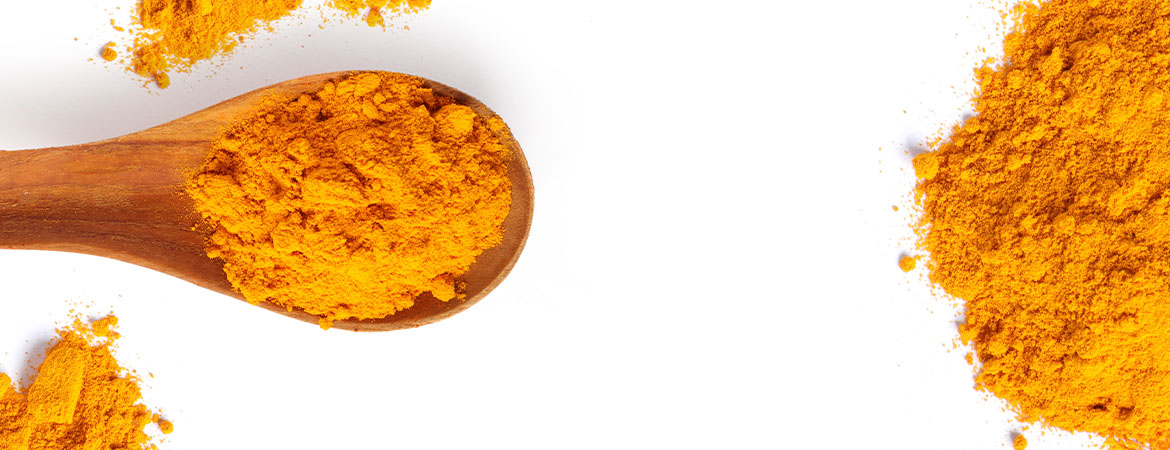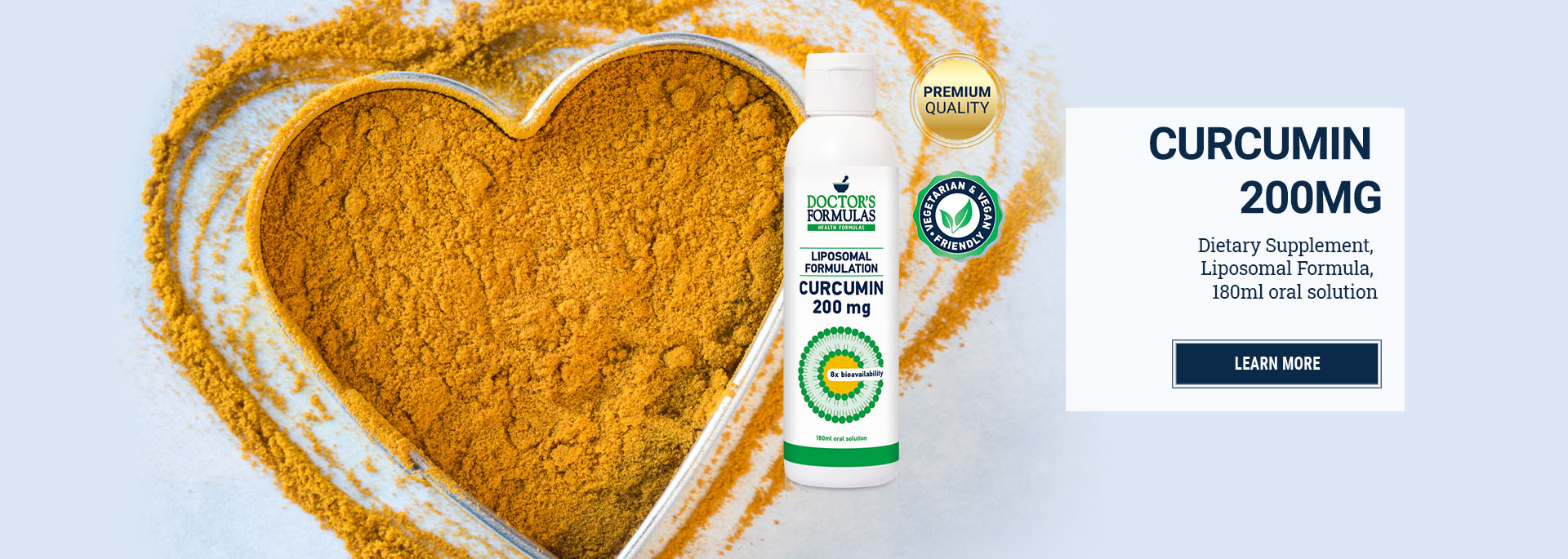Curcumin’s Antioxidant Activity
Antioxidant Potential of Curcumin
a Meta-Analysis of Randomized Clinical Trials
Oxidative stress is an imbalance in the production of reactive oxygen species (ROS), and the ability to neutralize them and repair damage. Under physiological conditions, cells are maintained in a reducing environment, provided by endogenous antioxidants or antioxidant enzymes.
Increased levels of oxidative stress have consequences such as lipid, protein, and nucleic acid modifications, which ultimately lead to a worsening of mitochondrial function and cell death.
In turn, so many dysfunctions lead to many disorders, among others neurodegenerative diseases (Alzheimer’s and Parkinson’s disease), atherosclerosis, obesity, or simply aging. Searching for natural substances with high antioxidant potential seems to be an effective preventive measure in free radical-linked phenotypes.
Curcumin (C21H2OO6) is a lipophilic substance of a polyphenol nature. It is obtained from rhizomes of turmeric (Curcuma longa L.)—a plant belonging to the ginger family, commonly known as Indian saffron or turmeric.
Curcumin, through its chemical structure and the presence of hydroxyl and methoxy groups,
is attributed to many properties,
in particular antioxidant, antimicrobial, anti-inflammatory, anti-angiogenic, and antimutagenic ones.
Due to its ability to interact with various molecular targets, curcumin inhibits inflammatory cell proliferation and angiogenesis, as well as acts chemopreventive. These properties are associated with the regulation of proinflammatory cytokines, nitric oxide synthase (iNOS) enzymes, cyclooxygenase-2 (COX-2), lipoxygenase, xanthine oxidase, and reduction in malondialdehyde (MDA).
Research suggests that curcumin maybe
an effective antioxidant that minimizes the effects of oxidative stress!
By being able to interact with various molecular mechanisms, it reduces the level of oxidative stress, which is related to, among others, the ability to chelate heavy metals or regulate the activity of many enzymes.
The antioxidant potential is defined as the ability to neutralize oxygen free radicals that are generated in excess due to environmental influences.
The body’s defense mechanisms often require support in preventing the effects of oxidative stress. The literature data suggest that curcumin has antioxidant activity that can significantly reduce oxidative stress levels. The aim was to assess the impact of curcumin on oxidative stress markers.
PubMed and Embase were searched from database inception until 27 September 2019 for randomized clinical trials in >20 patients treated with curcumin supplements and randomized to placebo/no intervention/physical activity to verify the antioxidant potential of curcumin.
Four studies were included in the meta-analysis, three of which were double-blind and one single-blind. A total of 308 participants took part in the research. A total of 40% of the respondents were men. The average age of participants was 27.60 ± 3.79 years. The average supplementation time was 67 days and the average dose of curcumin administered was 645 mg/24 h.
Curcumin significantly increased total antioxidant capacity (TAC) (SMD = 2.696, Z = 2.003, CI = 95%, p = 0.045) and had a tendency to decrease malondialdehyde (MDA) concentration (SMD = −1.579, Z = −1.714, CI = 95%, p = 0.086).
Pure curcumin has the potential to
reduce MDA concentration and increase total antioxidant capacity.
Curcumin, a bioactive polyphenol, is a common ingredient in Indian cuisine. It is also popular in South Asia and the Middle East; however, it is also increasingly used in European countries.
Curcumin acts on various molecular pathways, and it also has great potential in the fight against chronic diseases due to its biological activity. However, curcumin’s antioxidant properties are considered key ones.
Oxidative stress, which is characterized by an imbalance between the production and elimination of ROS, is associated with aging processes and many chronic diseases. However, due to the very short half-life of ROS, it is impossible to measure their levels directly. Hence, measurements of changes in MDA, TAC, CAT, GPx, and SOD levels are carried out, which are considered significant manifestations of oxidative stress.
For instance, high initial levels of MDA concentration are correlated with the occurrence of excess free radicals, thus making dialdehyde an excellent marker of oxidative stress.
Many studies indicate curcumin as an agent having the ability to reduce serum MDA levels as well as increase SOD and GPx activity. Clinical trials regarding the curcumin effects report promising effects. However, often these studies include curcuminoids with piperine or extracts that are a mixture of different compounds.
In summary, this meta-analysis has shown that pure curcumin has antioxidant properties. It reduces the concentration of malondialdehyde (MDA) in serum and has the potential to increase the total antioxidant potential (TAC).
The action of curcumin on markers of oxidative stress is associated with its properties directed to the removal of reactive oxygen and nitrogen, metal chelation, and regulation of numerous enzymes.
Curcumin has therefore been proven to be an antioxidant. Further research, however, is necessary due to the still too few studies assessing pure curcumin (not curcuminoids, without the addition of enhancers, such as piperine) and limitations in the form of a diverse study population affected by various diseases, which may significantly affect the results.
Story Source:
Antioxidant Potential of Curcumin—A Meta-Analysis of Randomized Clinical Trials Antioxidants 2020, 9(11), 1092; https://doi.org/10.3390/antiox9111092


